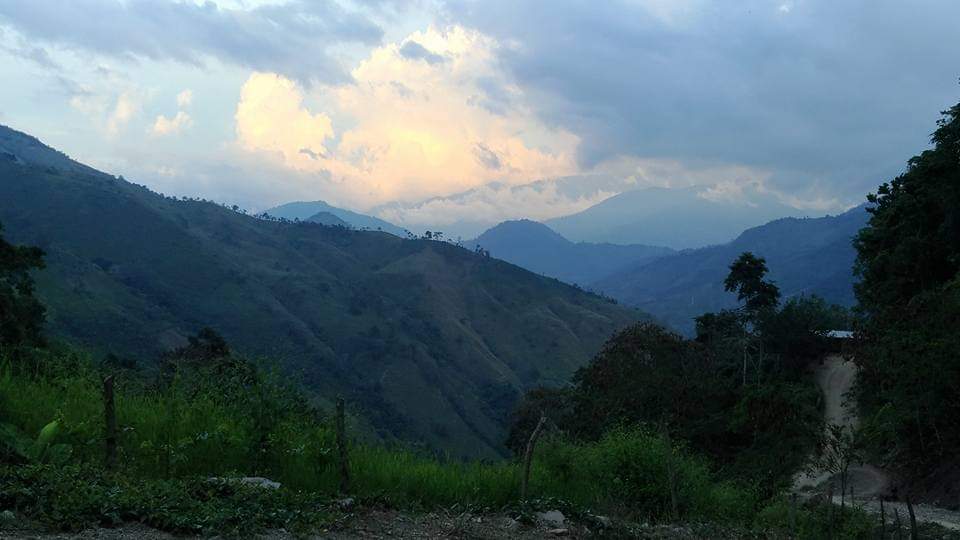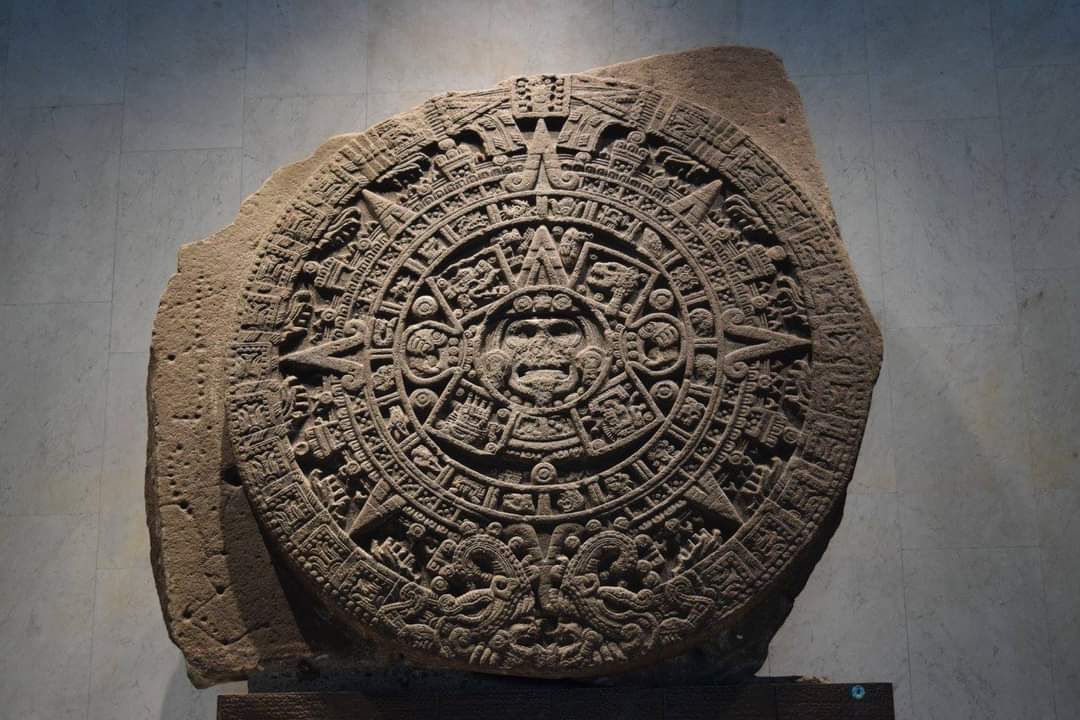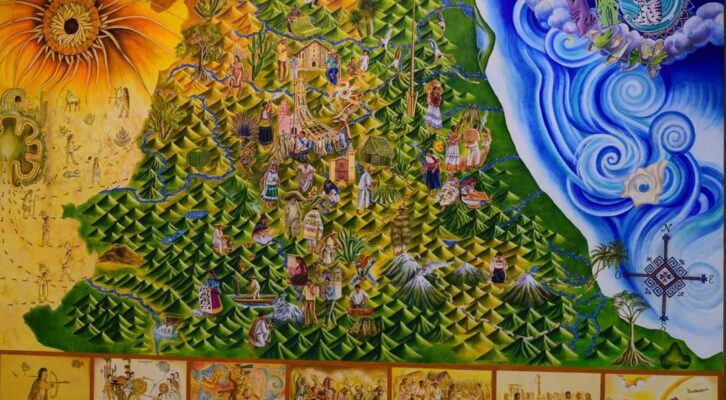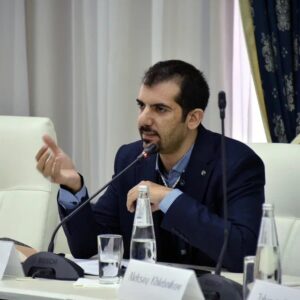Introduction
In 2018, I was working with Caritas Colombiana monitoring the implementation of the Peace Agreement in the Amazon region with the Kroc Institute, we “experts” arrived in “the field” with a predesigned methodology to ask “campesinos”[1] and indigenous people their perception of progress in the implementation of the Agreement, indigenous authorities made a strong call to our attention because we not only arrived with methodologies that were not consulted, but we also came to request information that they did not have at that time and they had to consult with their communities in their territories, after that we started to involve local organizations in the design of methodologies for collecting information, acknowledging that local “campesinos” and indigenous people have key wisdom for the prevention of socio-environmental conflicts, after that my methodological approach to accompany the transformation of socio-environmental conflicts was never the same, now I try to open up the design of methodologies with local “campesinos” and indigenous communities for the transformation of conflicts.

My central argument in this reflection is that the way “how do we solve a problem and who we involve” matters, not only to provide legitimacy to the transformation processes of socio-environmental conflicts but also to develop pertinent Earth System Governance (ESG) methodologies in ethnic contexts of biocultural diversity[2] incorporating Traditional Ecological Knowledge (TEK) into existing knowledge frameworks as data (Cruikshank, 2012), to contribute in a larger discourse in the social sciences on new institutionalism and governance for the climate change mitigation (Biermann, 2007).
Potential of ESG to promote social dialogues including traditional ecological knowledge for climate change mitigation for the defense of territories
Distancing itself from the traditional scientific method of irrefutable truths, ESG is concerned with the issue of governance and legitimacy as a conceptual and pragmatic issue to find effective methods of mitigating the effects of climate change on social and ecological systems, through the dialogue between scientific disciplines (natural, social and political sciences among others) and local knowledge, disrupting traditional visions of development thought from the top-down, led by a nation-state model that is currently tending towards debacle, just like the neo-liberal capitalist model that seeks to accumulate profits and reduce costs in a world in with limited natural resources. ESG steers human societies towards preventing, mitigating, and adapting to environmental change and the earth system, which is one of the central political challenges of our time, aiming to contribute to this challenge through principles of credibility, stability, adaptiveness, inclusiveness (Biermann & Gupta, 2011).
At this point in human history, it is complex to talk about a return from the consequences of climate change, but we can nonetheless find ways to mitigate its adverse effects, SEG has the potential to become a strategic discipline for the mitigation of climate change, through the design of participatory methodologies in which the different types of knowledge enter into an equal position, decolonizing knowledge (Santos, 2010) to find real solutions to the problems of hunger, food sovereignty and public health that have already begun to appear all over the world, to which the current development model has not been able to offer effective solutions.
Currently, exist several lively discussions regarding the potential contributions of indigenous knowledge to environmental sciences, and some scientists are integrating traditional ecological knowledge (TEK) into existing knowledge frameworks as data (Cruikshank, 2012). An example of TEK is a common agricultural practice on Lake Titicaca, on the border between Peru and Bolivia, where thousands of years ago my Inca ancestors domesticated potato seeds, and since then the communities have produced potatoes without chemicals, rotating the soil every seven years in collective plots and let rest the land to recover the soil, harvesting nutrient-rich potatoes in soils that are highly resilient to climate change.
Recommendations for an inclusive implementation of ESG
The development of open working groups, sustained over time, involving representatives of different sectors (youth, older adults, LGBTIQ, private sector, ethnic communities, women, social and natural scientists, government institutions, “peasants”, etc.), fostering legitimacy, governance and the active exercise of citizenship for the defense of the territories by using the “Campesino a campesino” methodology[3] ( ANAP; CITMA; Municipal Government Niceto Pérez and Manuel Tames; Oxfam., 2016), frequently used in agroecological production processes in Latin America, can lay clear methodological foundations on how to develop inclusive knowledge-building processes for climate change mitigation through the defense of territories and the exercise of sovereignty; as well as the conceptual approach of biocultural diversity. It is also essential to acknowledge the “campesinas” and indigenous women’s wisdom regarding the protection of territories, as guardians of ancestral seeds and knowledge, which is essential to guarantee food sovereignty and autonomy in the world and to prevent future conflicts.

Conclusion
ESG has the potential to build new methods, knowledge, and narratives for climate change mitigation and defense of territories by involving local traditional knowledge that can be effective in preventing socio-ecological conflicts. However, for the success of these methodologies, it is essential to develop alternatives sustained over time and involving a variety of actors, such as the private sector, local ethnic and “campesinas” communities, government institutions, and academia as well. Concerns over accountability and legitimacy pertain to all levels of governance, from the local to the global, and cover the spectrum of public and private governance arrangements, and global visions of development should not enter into tension with local visions of relations with the territory, in which there is no notion of private property, nor the understanding of the natural world as a commodity at the service of man.
References
ANAP; CITMA; Municipal Government Niceto Pérez and Manuel Tames; Oxfam. (2016). Metodología Campesino a Campesino. La Habana, Cuba.
Biermann, F. (2007). ‘Earth system governance’ as a crosscutting theme of global change research. Global Environmental Change, 326-337.
Biermann, F., & Gupta, A. (2011). Accountability and legitimacy in earth system governance: A research framework. Ecological Economics, 1856-1864.
Comisión Nacional para el Conocimiento y Uso de la Biodiversidad. (22 de 08 de 2022). https://www.biodiversidad.gob.mx/diversidad/patrimonio-biocultural. Obtenido de Patrimonio biocultural: https://www.biodiversidad.gob.mx/diversidad/patrimonio-biocultural
Cruikshank, J. (2012). Are Glaciers ‘Good to Think With? Recognizing Indigenous Environmental Knowledge. Anthropological Forum, 239-250.
Santos, B. d. (2010). Decolinizar el saber, reinventar el poder. Montevideo: Ediciones Trilce.
[1] There is no exact translation for “Campesinos” in English, the closest concept would be “peasant”, which only recognizes campesinos as economic actors, and does not recognize the cultural, and political sense of the identity of “campesinos”, that´s why I use the category of “campesino” rather that peasant.
[2] Biocultural heritage refers to local ecological knowledge and practices, associated biological wealth (ecosystems, species, and genetic diversity), the formation of landscape features and cultural landscapes, as well as the heritage, memory, and living practices of managed or built environments (Comisión Nacional para el Conocimiento y Uso de la Biodiversidad, 2022).
[3] The Campesino a Campesino methodology is characterized by maintaining a process of sustained communication, based on the exchange between “campesinos”. Although they participate in technicians and specialists, the relationship between the same uses simple and understandable language by the producers.







